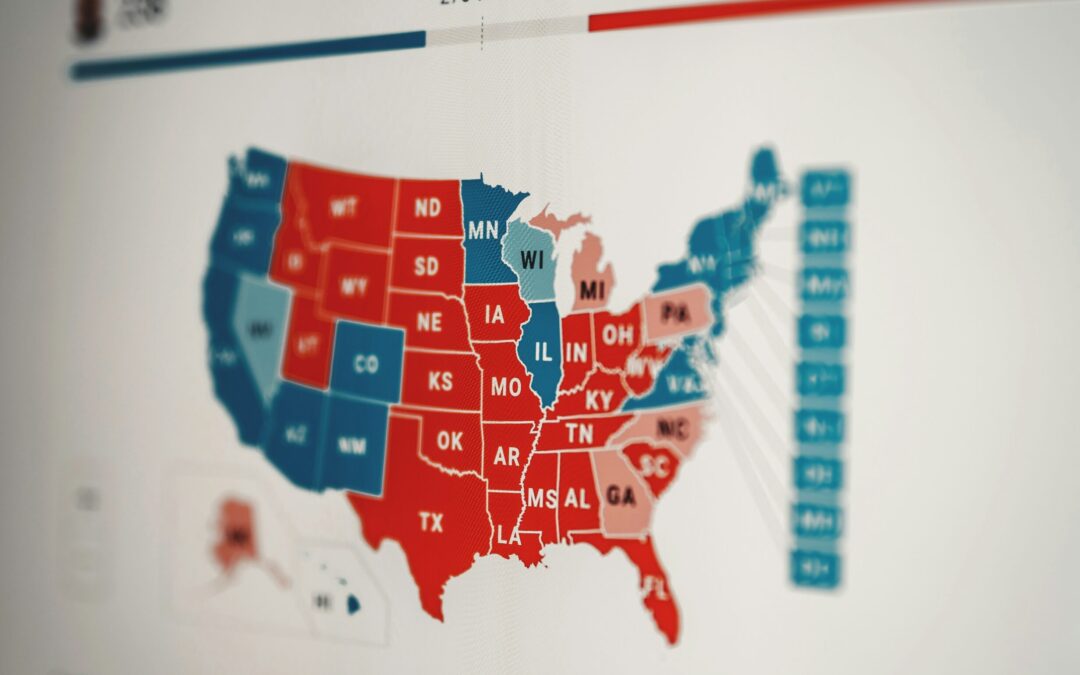Your Insider Cheat Sheet
A lot is going on in this year’s elections but there’s such overwhelming coverage of the Presidential contest that there isn’t much left to report other than the actual results. Of course, that won’t stop people from repackaging stories that have already been written and obsessing over the latest poll.
But we’re Javelina. We’re your friends – and friends don’t let friends read “Same Stuff Different Day.” So, here is your official Non-Presidential Election Night Cheat Sheet of races to watch.
1. US Senate
Barring a blue wave, Democrats seem poised to lose a senate seat in Montana, and with the retirement of Joe Manchin and the certain loss of a seat in West Virginia, the party will be hard-pressed to keep the majority. Democrats are defending 7 of the 9 Senate seats that the Cook Political Report lists as a toss-up or leaning slightly to either Party. The 9 seats are Arizona, Michigan, Montana, Nebraska, Nevada, Ohio, Pennsylvania, Texas, and Wisconsin. According to Cook, the only truly vulnerable GOP seats are Deb Fischer in Nebraska and Ted Cruz in Texas.
The Key Takeaway
→ For Democrats to keep the majority, they’ll need to win every toss-up state and at least one of the seats that lean towards Republicans: Montana, Texas, Florida, or Nebraska, and even that only results in a 50-50 Senate. Kamala Harris would need to win so that Tim Walz can break ties.
2. US House
Republicans control the House of Representatives by an 8-vote margin, 220 to 212. Additionally, 3 seats are vacant but two of those are solid blue seats. There are 54 battleground districts located across the country that could swing either way. Many eyes will be on California and New York which have the most battlegrounds at 7 apiece. Two battlegrounds are in Javelina’s home state of Arizona: AZ-01, where incumbent David Schweikert (R) faces Amish Shah (D), and AZ-06, where incumbent Juan Ciscomani (R) faces Kirsten Engel (D).
The Key Takeaway
→ To win control of Congress, Democrats need a net pickup of 4 seats in November. We could see both the US Senate and House flipping in this election, in opposite directions!
3. Governors
New Hampshire is going to be an interesting race to watch. While the Governor’s mansion is currently occupied by Republican Chris Sununu, he’s retiring, so it’s an open seat. It is also the only gubernatorial race in the country that is rated a pure toss-up by national pundits since most Governors are up during midterm elections. Meanwhile, North Carolina has a race with the same lurid appeal as a bad traffic accident. There, Democratic Attorney General Josh Stein is squaring off against the scandal-scarred, porn-posting, self-described “black Nazi” Republican, Mark Robinson.
The Key Takeaway
→ A Democratic win would bring the partisan divide among governors close to even at 26 R’s to 24 D’s. Also, because New Hampshire holds the first-in-the-nation Republican primary, a new GOP Governor can have outsized influence in their party’s national politics in the same way Chris Sununu has.
4. Mayors
Portland, OR, is a progressive bastion that decriminalized all drugs and became nationally famous for violent protests. Now, the city faces serious economic struggles, a fentanyl crisis, homelessness, and a declining population as residents move away. Will the city react to these challenges by doubling down on progressive candidates or moving toward the center? Looking to answer that question are a whopping 19 candidates for mayor and 98 candidates for the soon-to-be 12-member city council.
In a similar – though less dramatic – vein, San Francisco has a consequential election for mayor, with a measly 8 candidates running for the position. Portland laughs at such a small candidate field! Taking center stage in SF is, once again, choosing an ideological direction around issues like housing, homelessness, and crime.
The Key Takeaway
→ These contests may offer clues about the ideological direction in which the Democratic Party is moving. Additionally, the San Francisco race shows just how different outcomes can be with a system of ranked choice voting in place. The incumbent mayor, London Breed, leads comfortably in head-to-head polls – but because of ranked voting, she’s actually in a race that is likely to be decided by a razor-thin margin.
Which local races will you be focused on when Election Day rolls around? Tag us on social (@javelinaco) and let us know!

